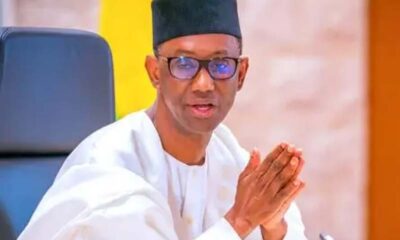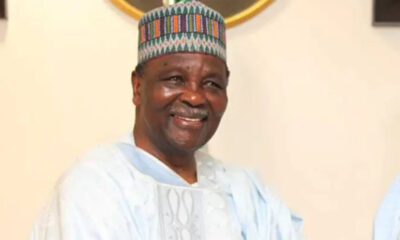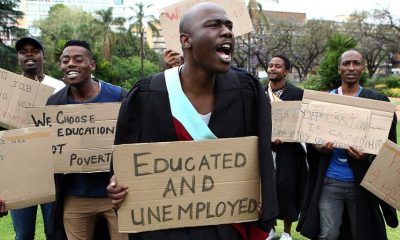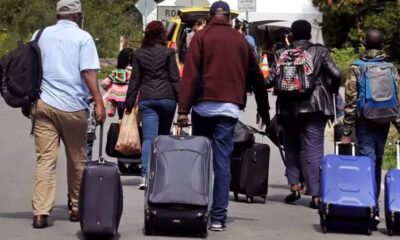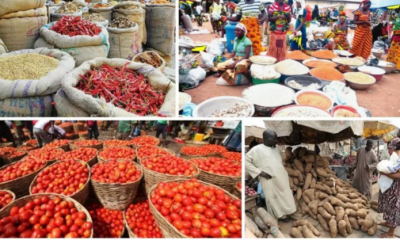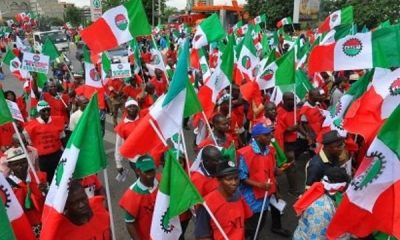Business
Foreign investors shun Rivers, Enugu, Kaduna, 24 others
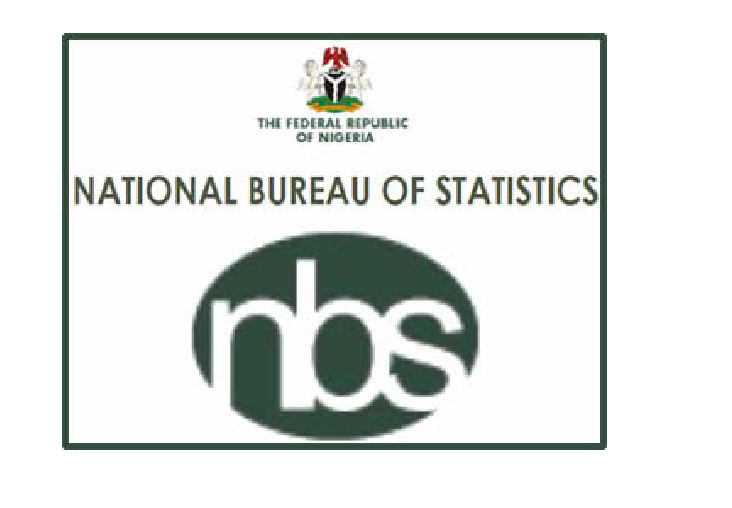
Foreign investors shun Rivers, Enugu, Kaduna, 24 others
Foreign investors shunned 27 states as the value of capital importation that flowed into the Nigeria’s economy fell by 20.5 per cent to $5.33bn in 2022 from $6.70bn in 2021.
The National Bureau of Statistics disclosed this in its latest Nigerian Capital Importation report for the four quarters of 2022.
According to the NBS data, the 27 states ignored by investors are Abia, Adamawa, Bauchi, Bayelsa, Benue, Borno, Cross River, Delta, Ebonyi, Edo, Enugu, Gombe, Imo, Jigawa, Kaduna, Kano, Kebbi, Kwara, Nasarawa, Niger, Ogun, Osun, Rivers, Sokoto, Taraba, Yobe, and Zamfara.
In 2022, only ten states attracted foreign investments.
Lagos took the lead as it outshined others, and the federal capital territory (FCT), to top the list of states that attracted the most investments within the year.
Analysis by TheCable Index shows that the country’s commercial city attracted $3.61 billion in investment, representing 68 percent of the total capital inflow into the country for the period under review.
READ ALSO:
- Real Madrid rout Barca to reach Copa del Rey final
- Man Utd 1-0 Brentford: Marcus Rashford scores again as Red Devils move back into top four
- I will stop the seizing, crushing of motorcycles in Nigeria – Shettima
This also shows an increase when compared to the $2.21 billion investment recorded in 2021.
The NBS said Abuja (FCT) emerged second top investment destination with $1.63billion — representing 31 percent of the total capital inflow in the country in 2022.
Other states that attracted foreign investments in 2022 are Akwa Ibom ($42.52 million), Anambra ($36.97 million), Oyo ($3.00 million), and Kogi ($2.00 million).
Katsina followed with $0.70 million, Ekiti ($0.51 million), Ondo ($0.20 million), and Plateau ($0.04 million).
Out of 52 countries that invested in Nigeria, the United Kingdom emerged as the top source of capital investment in 2022 with $2.76 billion; followed by South Africa ($428.73 million), Singapore ($420.97 million), and the United States ($286.92 million).
No foreign investment in eight states in four years
Out of the 27 states that were ignored by foreign investors, eight also failed to attract foreign investments in the last four years (2019 -2022).
The states are Bayelsa, Ebonyi, Gombe, Jigawa, Kebbi, Taraba, Yobe, and Zamfara.
A recent report by the Debt Management Office (DMO) and the NBS also shows that some of the states are accumulating domestic and foreign debt.
According to DMO, apart from Kebbi state, the others had an increase in domestic debt in the last seven years.
Yobe State had a domestic debt growth of +2,247 percent, followed by Taraba at +218 percent, Gombe at +161 percent and Zamfara at +142 percent.
Others are Ebonyi with +139 percent growth in domestic debt, followed by Jigawa at +98 percent and Bayelsa at +42 percent. Only Kebbi State (-4 percent) had a decrease in its domestic debt in the last seven years.
On the internally generated revenue (IGR) front, the data also showed that the above states were doing poorly in generating revenue for their respective states.
The 2021 data released by the NBS (which is the latest) showed that Yobe generated N8.5 billion, which is the lowest among the 26 states; followed by Taraba with N9.6 billion, and Kebbi at N9.9 billion.
Gombe generated N10.6 billion as IGR in 2021, followed by Ebonyi (N13.8 billion) and Bayelsa, an oil-producing state, generated N13.3 billion in 2021. Jigawa and Zamfara generated N16.5 billion and N18.9 billion, respectively.
Nigeria’s Ambassador to Mexico, Adejare Bello, said restoring security in the country was a prerequisite for productive investment.
Bello said Mexican investors were willing to “invest heavily in Nigeria’s economy but for the prevailing security situation in the country”.
“The embassy receives frequent enquiries from investors on possible areas of collaboration between both countries but all these efforts to attract foreign investments are being thwarted by the news of insecurity,” he said.
He added, “Some of the areas the foreign investors have been looking to invest include oil and gas, gold mining, agriculture as well as establishing a partnership with Dangote in the area of fertiliser procurement.”
Foreign investors shun Rivers, Enugu, Kaduna, 24 others
Auto
Coscharis Motors clinches Nigeria’s Multi-Luxury Company Award as Range Rover Autobiography emerges Luxury SUV
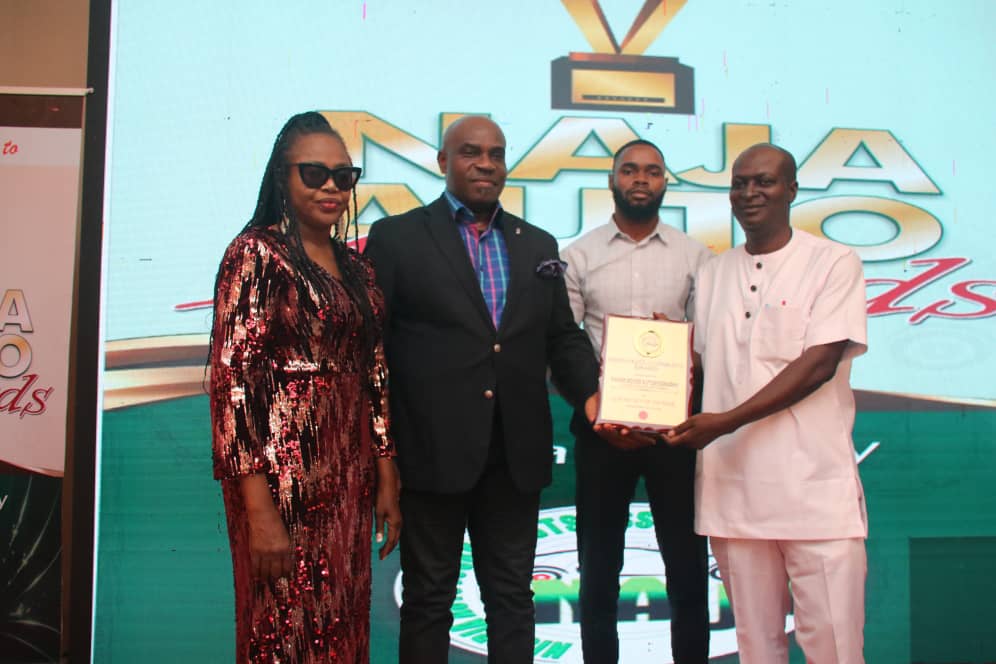
Coscharis Motors clinches Nigeria’s Multi-Luxury Company Award as Range Rover Autobiography emerges Luxury SUV
It is a double honour for Coscharis Motors Plc, one of the subsidiaries of the respected conglomerate, Coscharis Group, as it was declared Multi-Luxury Company of the Year and one of its iconic luxury brands, Range Rover Autobiography, was adjudged the Nigeria’s Luxury SUV of the Year at the 2024 edition of the Nigeria Auto Journalists Association Awards.
The well attended event was held recently at the prestigious Oriental Hotels, Lagos.
Coscharis Motors, a household name in topnotch globally respected luxury automobile brands in Nigeria, has been the exclusive representative of the British iconic luxury brand of the Jaguar Land Rover and the German pride in the luxury segment of the BMW brand over many decades.
The company in 2023 added another new luxury brand from United Kingdom into the Nigeria market which is the Grenadier from the Ineos group in UK. The Grenadier is a brand new product globally which is equally being represented in Nigeria by Coscharis Motors as a new addition to its existing ‘House of luxury’ when it comes to automobile of repute.
The luxury SUV category was keenly contested with other tested luxury brands but the Range Rover Autobiography came tops, according to the organizers, after strong consideration of the market acceptance of the Autobiography in all ramifications.
The All New Range Rover Autobiography variant is revolutionary, reliable and a class on its own with its special appeal, style that resonates with its priority audience when it comes to luxury, class, comfort and performance.
Receiving the award on behalf of Coscharis Motors, the General Manager, Marketing and Corporate Communications, Coscharis Group, Mr. Abiona Babarinde, dedicated the award to all the Coscharis Motors customers, especially the luxury brand enthusiasts for their acceptability of all the luxury brands in the Portfolio namely the Jaguar Land Rover, BMW and the new Grenadier respectively as their preferred luxury automobile of choice.
He said, “These awards only reconfirm our expertise in delivering top notch luxury experience to our premium customers while maintaining the global standard of brand positioning to discerning customers in the ever dynamic Nigerian market.
“Representing these globally respected iconic brands over the years exclusively in Nigeria involves consistent delivering of value for money that involves the total luxury experience from the point of brand awareness to the purchase stage and the aftersales service experience to deliver the peace of mind required.”
Group Managing Director of Coscharis Motors Plc, Mr. Josiah Samuel, also dedicated the awards to the company’s ever loyal customers for their patronage and acceptance of the brands with a promise to continually create more value in the automobile industry in Nigeria.
He said, “There can’t be another best way to end the business year in 2024 than with these set of prestigious awards despite all the business challenges in the year and more importantly that the awards are coming from a very critical stakeholder / partner like the media.”
The award event attracted various stakeholders that are players in the automotive sector in Nigeria.
Auto
Leadership by example: FRSC Corps Marshal leads field operations, patrol highways
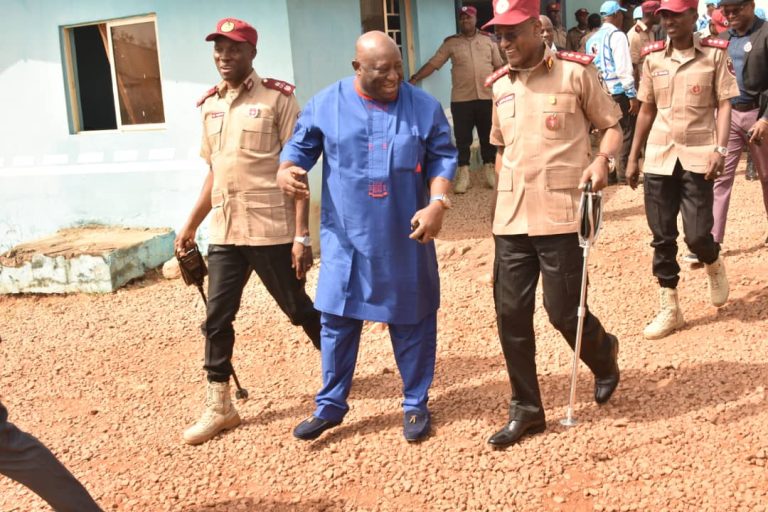
Leadership by example: FRSC Corps Marshal leads field operations, patrol highways
By Bisi Kazeem
As the year winds down and Nigerians embark on end-of-year travels, the Federal Road Safety Corps (FRSC) has intensified its efforts to curb road crashes and ensure safer highways. Leading this charge is the Corps Marshal, Shehu Mohammed, who has set a sterling example of sacrificial leadership by actively participating in frontline operations during this critical period.
The end of the year is a notoriously perilous time on Nigeria’s roads, marked by increased traffic, heightened road traffic crash risks, and a surge in reckless driving.
However, under the proactive leadership of the Corps Marshal, the FRSC rolled out an unprecedented campaign to reduce road traffic crashes and fatalities, ensuring that the festive season is marked by joy rather than tragedy.
True leadership is not defined by words but by action. The Corps Marshal exemplifies this by personally leading field operations, patrolling highways, monitoring traffic flows, and directly engaging with road users.
His visible presence has reinvigorated the morale of FRSC officers and demonstrated to the nation that leadership is about service and sacrifice.
He defied insecurity on the highways and embarked on a traffic monitoring operation from Abuja, the Federal Capital, through Kogi, Ekiti, Ondo, Owo, Ore, down to Edo and Delta.
His decision to lead from the front underscores his commitment to the FRSC’s mission of saving lives and highlights the urgent need for compliance with traffic rules and regulations.
From the beginning of the Ember Months sensitisation campaign in September, the Corps had gone ahead of time, implementing series of robust measures aimed at addressing road safety challenges during the festive season. These remedies include; increased patrols and checkpoints as additional officers and vehicles have been deployed in strategic points on highways to monitor and enforce compliance with traffic laws; organised nationwide safety campaigns targeting speed violations, drunk driving, overloading and seatbelt use.
These campaigns educate drivers on the dangers of reckless behaviours and emphasize the importance of safe driving practices.
The Corps also ensured Emergency Response Preparedness: ambulances, tow trucks, and rescue teams are on standby to ensure rapid responses to emergencies, reducing fatalities and injuries in the event of crashes.
Knowing that the task of making the highways safe is a collective action, FRSC went into the season with strengthened partnerships with key stakeholders, including the Nigeria Police Force, transport unions, traditional rulers and local communities, to foster a united front in the battle against road crashes.
The Corps Marshal’s leadership has inspired not just his officers but also the general public.
His direct involvement sends a clear message that road safety is a shared responsibility requiring the commitment of all stakeholders.
The Corps Marshal’s hands-on approach during this critical period has not only motivated the FRSC team but has also restored public confidence in the agency’s commitment to saving lives,” said a motorist who witnessed the Marshal’s activities firsthand on the Niger Bridge.
The monitoring activities carried out across major corridors suggest that the intensified efforts are yielding positive results, with a noticeable reduction in road crashes and fatalities compared to previous years.
The Corps Marshal’s example of sacrificial leadership has brought renewed vigor to the FRSC’s operations, ensuring that every life is valued and protected.
Needless to state that the FRSC Corps Marshal, Shehu Mohammed, is indeed an enigma, a force to be reckoned with and a true example of practical leadership in public service as he leads yet again by example in the fight against road crashes in Nigeria.
Taking active front-line roles, dedicating to sacrificial leadership and willingness to take bold steps to address the challenges facing Nigerian roads.
By setting the pace, he’s inspiring his team and other stakeholders to join forces in the quest for safer roads in Nigeria.
As the festive season continues, let us all join the FRSC as they call on all Nigerians to support its efforts by adhering to traffic rules, avoiding risky driving behaviours, and prioritizing safety on the roads.
Together, with the leadership of the Corps Marshal and the dedication of FRSC personnel, a safer, accident-free festive season is achievable.
The Corps Marshal’s leadership reminds us all that effective leadership requires sacrifice, action, and a deep commitment to service.
As Nigerians embark on their journeys this season, they can take comfort in knowing that the FRSC is working tirelessly to make the roads safer for everyone.
*DCM Bisi Kazeem (Rtd), fsi MNIM anipr, a public relations expert and media guru writes from Lagos, Nigeria.
Auto
FG deploys Lanre Shittu CNG buses as airport shuttle

FG deploys Lanre Shittu CNG buses as airport shuttle
The Federal Government has commenced the deployment of Lanre Shittu Motors (LSM)-branded Compressed Natural Gas (CNG) buses in the nation’s airports for passengers shuttle.
The first batch of the CNG-powered buses has been launched at the Murtala Muhammed Airport, Lagos, at a ceremony attended by the Minister of Aviation and Aerospace Management, Festus Keyamo, and Managing Director, Federal Airports Authority of Nigeria (FAAN), Mrs Olubunmi Oluwaseun Kuku.
Speaking during the unveiling at the Lagos airport, the minister said the deployment was in line with the directive of President Bola Tinubu.
He said it was part of Nigeria’s commitment to reducing carbon emissions and meeting global climate targets.
‘’What you see here today is a fleet of CNG buses for FAAN to commence passenger movement at all our airports immediately,” the minister said.
He said the newly acquired CNG-powered LSM buses unveiled at the Lagos airport are eco-friendly with zero emission and designed with accessibility features for persons with disabilities.
The deployment, he added, was in compliance with the President’s goal of reducing reliance on traditional fossil fuels of petrol and diesel and promoting sustainable use of CNG to power vehicles in the country.
The introduction of the CNG to power automobiles is one of the Federal Government’s initiatives to ease the impact of fuel subsidy removal on the masses.
The CNG buses, according to the Managing Director of Lanre Shittu Motors, Taiwo Shittu, come in two specifications: a 31-seater for airport shuttle services and a 54-seater for mass transit city buses.
He said they had been equipped with modern amenities, including air conditioning, viewing screens, and charging stations.
With the introduction of the CNG buses, he said LSM aimed to provide a more sustainable and efficient transportation solution not only to Lagos but other parts of the country.
-

 Auto2 days ago
Auto2 days agoLSM MD extols founder’s qualities after latter posthumous industry award
-

 Entertainment2 days ago
Entertainment2 days agoMultiChoice announces free access to all DSTV channels for 3 days
-

 News2 days ago
News2 days agoNigeria Customs Service begins 2025 recruitment [How to apply]
-

 metro3 days ago
metro3 days agoJigawa State governor loses son 24 hours after mother’s death
-

 metro2 days ago
metro2 days agoHeavy security in Ilesa as ex-Osun deputy gov emerges new Owa-Obokun
-

 metro2 days ago
metro2 days agoLagos Imam to Tinubu: You haven’t disappointed us
-

 metro2 days ago
metro2 days agoDangote, Tinubu, Lookman named among 100 most influential Africans in 2024 (Full list)
-

 Sports2 days ago
Sports2 days agoRonaldo, Vinicius, Yamal win big at 2024 Globe Soccer Awards [Full list of winners]

